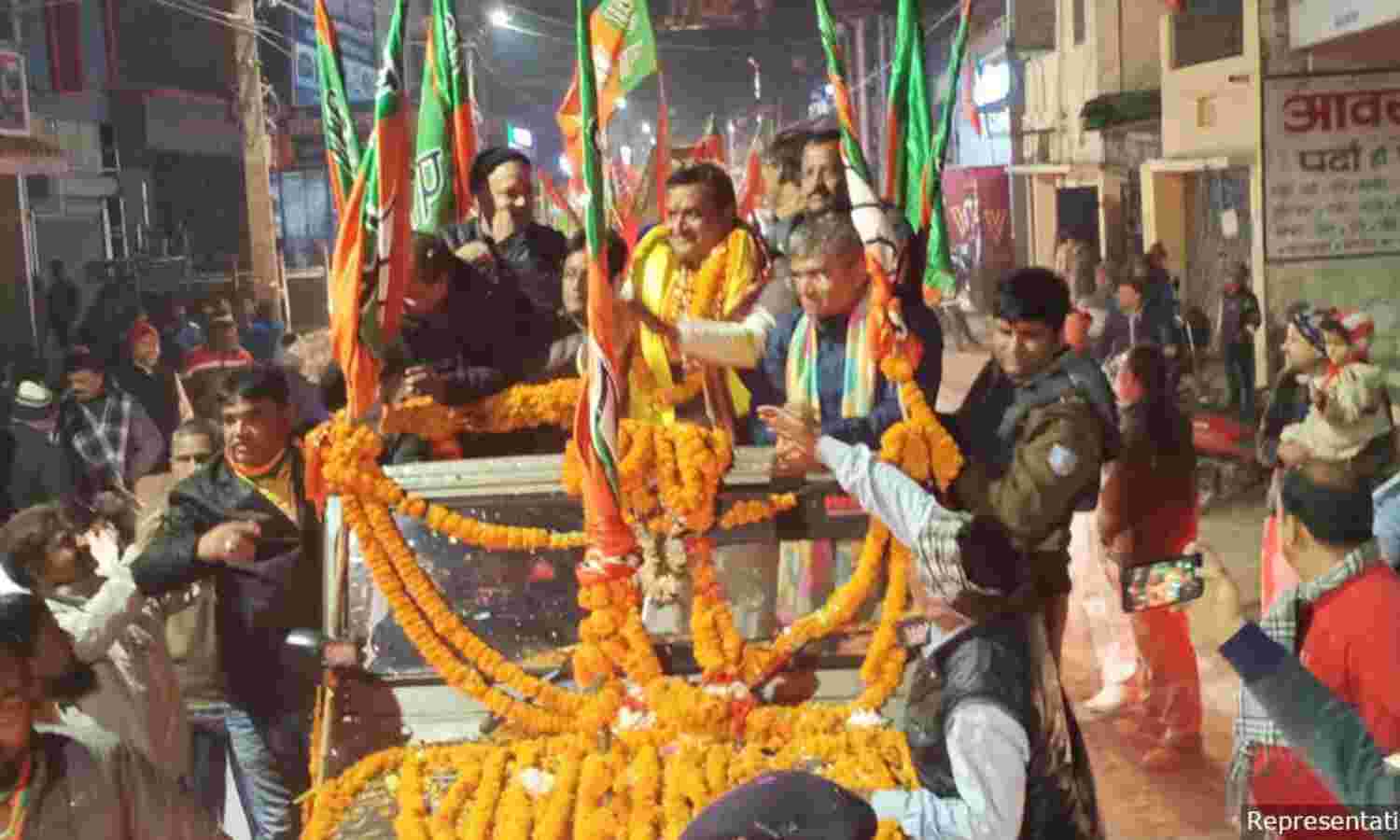New Jharkhand Assembly Has 15 ‘Dynast’ Legislators

Mumbai: At least 15 newly elected legislators in the 81-member Jharkhand assembly are dynasts. Of these, seven are from the Bharatiya Janata Party (BJP), six from the Jharkhand Mukti Morcha (JMM), and two from the Indian National Congress (INC), according to an IndiaSpend analysis of electoral data.
The results of the elections to the Jharkhand assembly were declared on December 23, 2019, and the Jharkhand Mukti Morcha-Congress-Rashtriya Janata Dal alliance won 47 of 81 seats. The BJP, which was voted out of power, won 25 seats of the 79 seats where it fielded a candidate.
A ‘dynast’ for the purpose of this article refers to any politician whose father or spouse was/is in electoral politics. The dataset does not capture extended family relationships. The figures, therefore, are possibly an underestimate.
Overall, at least 28 of the candidates fielded by prominent political parties belong to political families. Of these, 15 were elected as members of legislative assembly (MLAs), our analysis showed.
| Dynast Legislators In Jharkhand Assembly Election, 2019 | ||||
|---|---|---|---|---|
| Candidate | Political party | Family Member in politics | Relation With Candidate | Constituency |
| Jai Prakash Bhai Patel | BJP | Teklal Mahato | Father | Mandhu |
| Amit Kumar Mandal | BJP | Raghu Nandan Mandal | Father | Godda |
| Pushpa Devi | BJP | Manoj Kumar | Husband | Chattarpur Palamau |
| Manish Jaiswal | BJP | Braj Kishor Jaiswal | Father | Hazaribagh |
| Alok Kumar Chaurasiya | BJP | Anil Kumar Chaurasiya | Father | Daltonganj |
| Bhanu Pratap | BJP | Lal Hemndra Pratap | Father | Bhawanthpur |
| Nilkanth Singh Muna | BJP | T Muchirai Munda | Father | Khunti |
| Amba Prasad | INC | Yogendra Saw | Father | Barkagaon(Ramgarh) |
| Purnima Niraj Singh | INC | Niraj Singh | Husband | Jharia(Dhanbad) |
| Sabita Mahato | JMM | Sudhir Mahato | Husband | Ichagarh |
| Vikas Kumar Munda | JMM | Ramesh Singh Munda | Father | Tamar |
| Joba Majhi | JMM | Devendra Majhi | Husband | Manoharpur |
| Hemant Soren | JMM | Shibu Soren | Father | Borhait/Dumka |
| Sita Murmur | JMM | Durga Soren | Husband | Jama |
| Dinesh Wiliam Marandi | JMM | Simon Marandi | Father | Littipara |
Source: Analysis of Election Commission of India data
The results are not an acceptance or rejection of political dynasties, Rahul Verma, political scientist and Fellow, Centre for Policy Research, told IndiaSpend.
“State politics across India is shaped by local factors more than is often assumed, particularly in times of plebiscitary politics and in Jharkhand, the number of seats retained by MLAs across parties is significantly higher than in most other Hindi-belt states,” Gilles Verniers, head of the department of political science at Ashoka University, told IndiaSpend.
Many seats tend to be dominated by the same group, caste or tribe over time, he said, and political families or dynasticism contribute to strengthening the hold that certain local communities have over their political environment.
“The research on this area [dynasticism] has documented the negative implications of having a dynast as slower economic development in the area,” Verma added. “Political dynasties in democracies are a norm and it has flourished everywhere, be it the US or UK, and India is not an exception to that trend.”
7 of 11 dynasty candidates fielded by BJP won
At least 11 of the 79 candidates fielded by the BJP were from a political family, as per our analysis, with inputs from Ashoka University and research by National Alliance of People's Movements, Jharkhand. Of these, seven were elected.
"Vote for the 'Lotus' to ensure that the dynasts do not come back to power and the prosperity of the region increases manifold," BJP campaigner and Union Minister for Women and Child Development, Smriti Irani, said at a rally on December 8, 2019.
Similarly, at least nine of JMM’s 43 candidates were from political families. Of these, six were elected, including Hemant Soren, son of three-time chief minister and party chief Shibu Soren.
The INC contested in 31 seats and fielded at least three dynastic candidates, of which two were elected.
Source: Analysis of Election Commission of India data
“When it comes to fielding dynastic candidates, the BJP does not differ significantly from its opponents,” Verniers said. “Dynasticism is simply one factor of winnability of candidates among others and given the choice, the BJP would usually prefer to field a dynastic candidate over non-dynastic candidates. However, the number of candidates and MLAs who belong to political families is not particularly high overall so one should not make more of this issue than it deserves.”
“The BJP has been using the 'political dynasty' rhetoric to target the Congress party and Gandhi family,” Verma said. “However, there is a difference between political parties controlled by political families and candidates with family linkages. For BJP and Left, the party is not family-controlled, but they do have candidates with family linkages in elections. Most of the regional parties and Congress have a political family at the top.”
(Pushpita Dey, a graduate student of journalism at Symbiosis Institute of Media and Communication, is an intern at IndiaSpend.)
We welcome feedback. Please write to respond@indiaspend.org. We reserve the right to edit responses for language and grammar.


